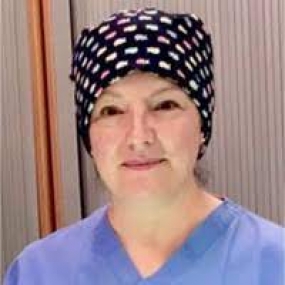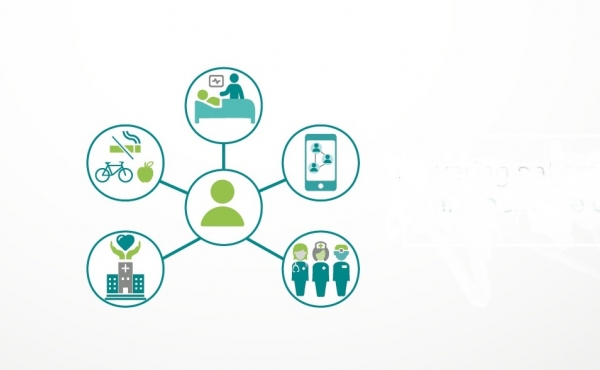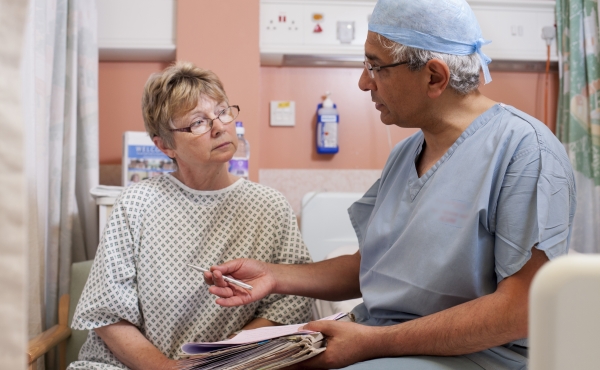The role of the ODP in perioperative care: now and in the future

Senior Lecturer, Operating Department Practice & Perioperative Studies, University of Huddersfield
I was delighted to see CPOC begin work on this new ‘Green paper’ programme for the future of perioperative care. I am a proud Operating Department Practitioner (ODP) turned academic – and I think ODPs have a lot to contribute to this agenda.
But too often in discussions of perioperative care, our voice is not heard, our role is not understood, and our potential is not realised. This is a huge missed opportunity for our patients, for our shared purpose, and for us ODPs as professionals.
I hope that by sharing my story and my hopes and aspirations for the future, I can help to change that a little.
Becoming an ODP
I’ve always had a fascination with the human body. I remember watching a documentary series called Your Life in Their Hands, which sparked a sustained curiosity in working in a critical care environment – particularly operating theatres and resus.
Like many people, I assumed you needed to be a nurse to get a non-medic role in theatres. Nurses are incredibly skilled and essential to high quality and safe care – but they often do a lot of work that I wasn’t personally attracted to. So, there I was, grumpily filling in my application form for adult nursing, thinking I would have to do a lot of ward and community work before I could achieve the holy grail of theatres.
Imagine then my delight when, flicking through the University prospectus, I happened upon the course titled ‘Operating Department Practice.’ I couldn’t believe my eyes or that no one had mentioned this to me before. Literally everything I wanted to do with my career was right there on the page!
What I wasn’t prepared for was the sense of satisfaction and pride I have gained from working with patients at what may be the most vulnerable moment of their life. If I had to choose my favourite part of the role, it would be the advocacy that we ODPs provide for those brave people who put their lives in our hands or entrust their loved ones to our care.
Being part of a team that can operate on people and then deliver them safely back to their loved ones is amazing and I want to make sure that I do my part to the best of my ability. I educate my students to have that same drive and desire to always do their best for every single patient they care for.
ODPs and perioperative care
The philosophy of perioperative care – patient centred, empathetic, and joined-up – is at the core of what I teach future ODPs. I believe we can be powerful advocates for this approach because we are there for a large part of a patient’s surgical journey. We help and support patients before surgery, we play a key role during operations by preparing equipment and acting as a link between the surgical team and others, and we support and monitor patients during recovery.
Despite our key role, we are still very much a hidden profession, lacking visibility and influence. That’s why it was no great surprise to me that in an evidence review CPOC recently commissioned on multidisciplinary working during perioperative care, ODPs aren’t mentioned by title once, although we do get a nod together with other Allied Health Professionals!
My hopes for the Green Paper
I would like this Green Paper consultation to shine a spotlight on the role of the ODP in perioperative care and the support that we need to fulfil the key role that I think we can – and must – play.
Although ODPs have a sense of community through informal networks, we don’t have a lot of resources to shout about the work we do and the value we bring. I’d love our anaesthetic and surgical colleagues to help us with this and spread the word. This may mean going out of your way to proactively involve ODPs in the initiatives you are leading or are a part of.
I would also like the Green Paper to examine workforce shortages within our profession and the rest of the surgical team. There is a national shortage of ODPs and we face sustained problems with recruitment. What is the impact of our shortage on patients and on perioperative care more widely?
Lastly, I would like the Green Paper to consider what would enable ODPs to take on a greater role within the perioperative team. For a start, I think ODPs need to be able to train to become independent prescribers. This would improve the service we could provide to our patients, help us support our medical colleagues better, and would also open up so many doors for advanced roles which could make the profession more attractive.
ODPs – get involved!
But that’s just one thought from one ODP. I would like the Green Paper to explore this more widely with ODPs – so if you’re an ODP that is reading this please consider getting involved with this project by sending your thoughts to the CPOC Green paper team at CPOCgreenpaper@rcoa.ac.uk
Specifically, they’d like you to consider top challenges you face when delivering perioperative care and one thing you think would enable you to deliver better perioperative care for your patients.



